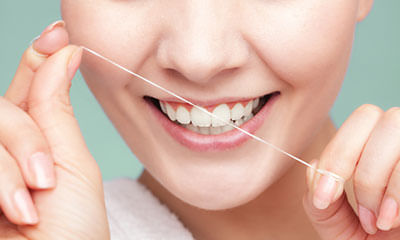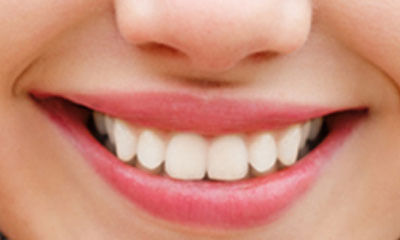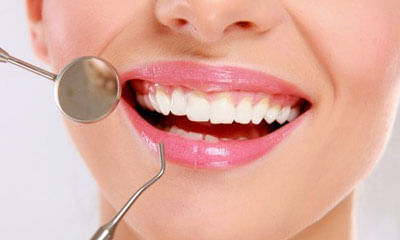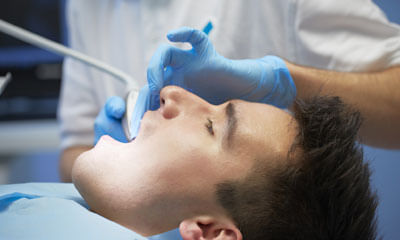Causes Of Pain In Gums
My gum was swollen, at the back, very end after molar. I had a lot of pain. Today it’s decreased, not gone. I’ve done sa ...
Ask Free Question
Wisdom teeth usually make their appearance between the ages of 17 and 21, though it's possible for them to push through earlier or later. Referred to as your "third molars," these four teeth begin to push through the skin like any other tooth, which can cause pain. However, wisdom teeth are much more likely to grow in at an incorrect angle – even sideways – causing impaction that can radiate this pain to the teeth in front of it. Kindly get it extracted as soon as possible.
My gum was swollen, at the back, very end after molar. I had a lot of pain. Today it’s decreased. I’ve done saltwater ri ...
Ask Free Question
It can cause due to dental caries or gum disease. Visit a good dentist, after check up anyone can say the reasons. Don't neglect it.
A food particle was stuck in between my gums and teeth which I removed it but still from 3 days a bit of pain is there i ...
Ask Free Question
Rinse with warm water with pinch of salt in it. 2 -3 times a day. It may ease your prb. However if the problem persists you may visit a dentist.
My 6 years old daughter is complaining about pain in the teeth and gum. Ho to relieve from the pain. ...
Ask Free Question
Pls get it chked, if it is because of food lodgement between teeth, or cavitry in tooth.. the earleir u get it chked the better it will be, .. A stitch in time saves nine
My right near and jaw is soring heavily unable to unable to cope up with the serve pain. Seems like someone is knocking ...
Ask Free Question
Hello, This could be coz of cold /ear ache or wisdom tooth decay problem. Visit your nearest dentist first to rule out any dental issue. If no dental problems then ent ppl can help you.
I had a chronic toothache on my right side upper molar for about 6 years. I was scared of removal by dentist so I waited ...
Ask Free Question
I'm very concerned about the symptoms you're experiencing, especially the combination of blurry vision, stiff neck, acidic taste, and fluid movement in your skull. These can be indicative of several serious conditions, and it's crucial that you seek immediate medical attention from a qualified healthcare professional, not just a dentist. Here's why your symptoms are concerning: blurry vision and stiff neck: these can be signs of meningitis, a potentially life-threatening inflammation of the membranes surrounding the brain and spinal cord. Acidic taste and fluid movement in the skull: these can be caused by a leak of cerebrospinal fluid (csf), the fluid that surrounds and protects your brain and spinal cord. This can lead to meningitis if not treated properly. Fatigue, weakness, back pain, and hip pain: these can be symptoms of various underlying conditions, including infections, autoimmune disorders, and even neurological problems. It's important to understand that I am not a medical professional and cannot diagnose your condition. Delaying proper medical attention can have serious consequences, so please don't hesitate to seek help immediately. Here are some steps you can take: call your doctor or go to the nearest emergency room as soon as possible. Explain your symptoms and the history of your decayed tooth. Do not try to self-diagnose or treat your condition. Be honest and open with your doctor about your concerns and any other symptoms you may be experiencing. Follow your doctor's instructions carefully. Early diagnosis and treatment can significantly improve your chances of a full recovery, so please take action now. Remember, your health is the most important thing. I hope you feel better soon. Please take care of yourself and seek immediate medical attention.
My wisdom tooth is growing from side, sometimes it causes pain. Should I go for surgery or any other alternatives are ne ...
Ask Free Question
Whether you should get surgery for your sideways-growing wisdom tooth depends on several factors, and determining the best course of action requires professional guidance. However, I can provide some information to help you understand your options: reasons for surgery: pain: if your wisdom tooth is causing you pain, especially recurring or severe pain, surgery to remove it is often the recommended course of action. Wisdom teeth growing sideways can irritate gum tissue and surrounding teeth, leading to discomfort. Infection: sideways-growing wisdom teeth are more prone to infection due to difficulty cleaning them properly. Infections can cause significant pain, swelling, and other complications, necessitating surgery. Damage to other teeth: sideways-growing wisdom teeth can push against neighboring teeth, causing crowding, misalignment, and even damage. Removing them can prevent these issues. Cyst formation: in some cases, sideways-growing wisdom teeth can lead to the formation of cysts, which are fluid-filled sacs that can damage the jawbone and surrounding teeth. Cysts typically require surgical removal. Alternatives to surgery: monitoring: if your wisdom tooth isn't causing any problems and isn't at high risk of causing issues in the future, your dentist may recommend monitoring it regularly. Pain management: while not a long-term solution, over-the-counter pain relievers and anti-inflammatory medications can help manage pain associated with an erupting wisdom tooth. Gum irrigation: proper oral hygiene and regular use of a water flosser can help keep the area around your wisdom tooth clean and reduce the risk of infection. Next steps: the best way to determine whether surgery is necessary for your situation is to consult a dentist or oral surgeon. They can assess your wisdom tooth through x-rays and a physical examination to understand its position, potential risks, and the most appropriate course of action. Remember, seeking professional advice is crucial for ensuring proper dental health and preventing potential complications.
My age is 34 unmarried, I have a stomach issue, long time chronic constipation, lower abdomen pain, mucus in stool and t ...
Ask Free Question
You have to improve your food habits do 1. Take 2/ 3glass of warm water in the morning before brush 2. Take more water in day 3. Take meals at fixed hrs, chew food properly/ completely, no eating quickly 4. Take small amount of food at a time, take more frequent meals - may be five times a day. 5. No spicy/ fried/ fast/ junk/processed food. Caffeine, 6. No smoking, chewing gum, and carbonated beverages. 7. No milk for few days, can take curd, no uncooked salad 8. Avoid constipation 9. Use nibupani (lemon water) 2/ 3 times a day 10. Do not drink/ store water in plastic bottles. 11 .relax and walk for 30 mts daily 12. Take enough rest- do not lie down immediately after eating. Take dinner 3 hrs before sleeping. No late nights 13. Keep your weight under control. 14. Avoid tea, coffee, alcohol 15. Reduce physical and mental stress. Maintain healthy life style. Do exercise regularly. 16. No unnecessary medicines medicine can not be advised for open question for medicine and further advise contact on private consultation good luck.
Anyone can help me. My tongue swollen and painful. Lots of taste buds swollen there. My jaw is hurting at the end of the ...
Ask Free Question
I understand you're experiencing discomfort and pain in your mouth and jaw, and I want to help provide some guidance. However, I cannot diagnose medical conditions or offer specific medical advice. It's important to seek professional medical help for accurate diagnosis and proper treatment. With that in mind, here are some general suggestions: seek medical attention: contact your dentist immediately: explain your symptoms and schedule an appointment as soon as possible. They can examine your mouth, diagnose the cause of your pain and swelling, and recommend the appropriate treatment. Consider emergency care if: you have difficulty breathing or swallowing. You have severe facial swelling or redness. You have a high fever. You experience intense, unrelieved pain. Possible causes: swollen taste buds: several factors can cause this, including allergies, irritation from dental appliances, oral thrush, or burning your tongue. Wisdom tooth issues: painful gum inflammation and swelling around wisdom teeth are common, especially if they're impacted or erupting. Tips to manage discomfort: gargle with warm salt water several times a day to soothe pain and swelling. Apply a cold compress to your cheek to reduce swelling and pain. Over-the-counter pain relievers like ibuprofen or acetaminophen can help manage mild pain. Avoid spicy, acidic, or hot foods that may irritate your tongue and mouth. Maintain good oral hygiene: brush and floss gently around the affected area to prevent further infection. Remember: don't try to diagnose yourself or ignore the symptoms. Seek professional medical advice to get a proper diagnosis and treatment plan. Follow the dentist's instructions carefully to ensure proper healing. I hope this information provides some initial guidance and helps you find the right medical care. Wishing you a speedy recovery!
When I focus on lower teeth 1 2 teeth start paining when I ignore it pain is gone. Is teeth pain can be psychological? ...
Ask Free Question
It's understandable that you're wondering if your tooth pain could be psychological, especially given the observation that the pain seems to lessen when you don't focus on it. While psychological factors can influence pain perception, it's important to rule out any underlying physical causes before attributing the pain solely to psychological reasons. Here's what you need to consider: physical causes of tooth pain: cavities: these can cause pain when exposed to hot, cold, sweet, or acidic food and drinks. Cracked teeth: these can cause sharp, stabbing pain, especially when biting down. Gum disease: inflammation of the gums can cause pain and sensitivity. Dental abscess: an infection at the root of the tooth can cause severe pain and swelling. Tmj disorders: these can cause pain in the jaw and surrounding areas, including the teeth. Psychological influence on pain perception: stress and anxiety: these can amplify pain perception, making even minor discomfort feel more intense. Focusing on pain: when you focus on a physical sensation, it can amplify its perception. Conversely, distracting yourself can sometimes lessen the pain. How to proceed: prioritize a dental check-up: an examination and diagnostic tests can help rule out any physical causes of your pain. Be open with your dentist about your observations: tell them about the pain lessening when you don't focus on it. Discuss stress and anxiety with your dentist: if you're experiencing high levels of stress or anxiety, it could be contributing to your pain perception. Your dentist can recommend stress management techniques or refer you to a mental health professional for further support. Remember: taking care of your dental health is crucial for overall well-being. Ignoring tooth pain can lead to worse problems down the line. There's no need to feel embarrassed about discussing the possibility of a psychological connection to your pain. A qualified dentist can help identify the underlying cause and recommend the best course of treatment. I hope this information helps clarify the possible reasons behind your tooth pain and encourages you to seek professional guidance. Don't hesitate to ask if you have any further questions.





